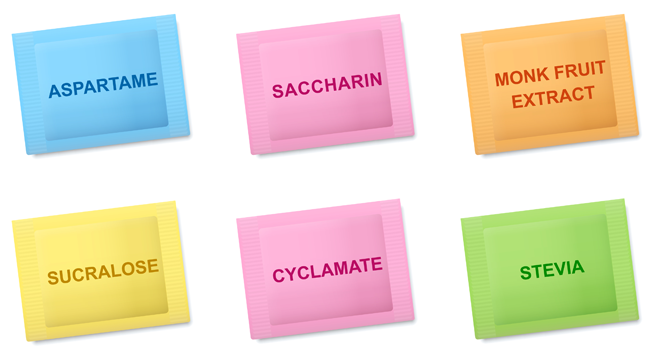
It is controversial that the English reading problem of the Common Test for University Admissions in January 2021 is misleading about sweets.I am wondering how this issue will be dealt with in the future.I would like to think about the correct knowledge and understanding of food additives.
Are Low Calorie Sweets Dangerous?
In English reading, many questions based on real life were asked in order to ask thinking ability and judgment ability.Among them, regarding the problem of sweeteners in Question 6B, the Japan Food Additives Association announced on its website that there is a misleading description of sweeteners (* 1).
The association pointed out that "some low-calorie sweets affect carcinogenic concerns, memory and brain development, especially for infants, pregnant women and the elderly. It is a sentence to the effect that it may cause harm. "Only food additives that are approved for safety are approved for use.Even if it is correct in English, it is wrong in food science, and it will arouse the anxiety of many people (* 2).
Masaki Katayama, a visiting professor at the Faculty of Food and Environmental Sciences, Toyo University, said, "Even though the content of the problem that 50 examinees are working on like this time is scientifically wrong, it is misunderstood as if it were a fact. It is not good to spread. Especially, unlike what you see and hear in the news, students read English sentences carefully, understand them, and solve problems, so they have a high degree of retention as knowledge and have a great influence. "
In fact, I heard from an acquaintance of a cram school teacher that a high school student who took the exam said, "I will stop adding sweets to coffee from tomorrow."From next year onward, many examinees may solve this problem as a past question and instill the idea that "sweeteners are dangerous".The Food Safety Information Network, an organization of experts, has issued a request to the National Center for University Entrance Examinations to prevent this problem from appearing in examination reference books in the future (* 3).
Is it due to a difference in the views of teachers?
Although scientists complain that the text on this issue is scientifically incorrect, food additives are often treated as bad guys in the world.If it's really dangerous, I don't think it's going to be used this much all over the world, but it's the science of the people that many people are still worried about food additives and that they are even taken up in entrance exam questions. Is it due to lack of literacy?
Michie Ofuji, a lecturer at Tokyo Technical College, who studies genetic (science) literacy education, said, "This is a deep problem rooted in the differences in views between science and social faculty members, rather than lack of scientific literacy." To tell.Certainly, textbooks on health and physical education, home economics, and the public (modern society) have items related to food safety for more than 10 years, and genetically modified foods, food additives, and pesticides have been taken up as issues in the future.
At that time, and even now, the curriculum guidelines are written to encourage discussion on issues related to food safety and security. "While a serious social teacher who is weak in scientific literacy compares textbooks with media information, the false idea that food additives are not dangerous is amplified, and it may be fostered for students." Ofuji continues.
